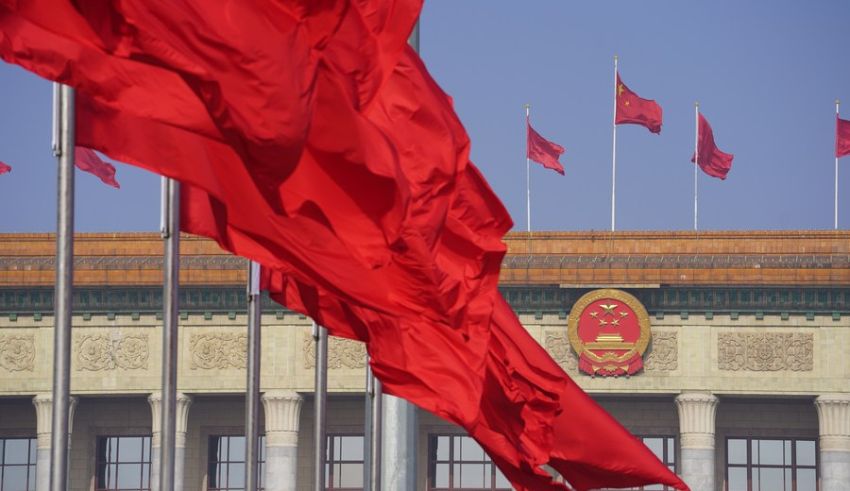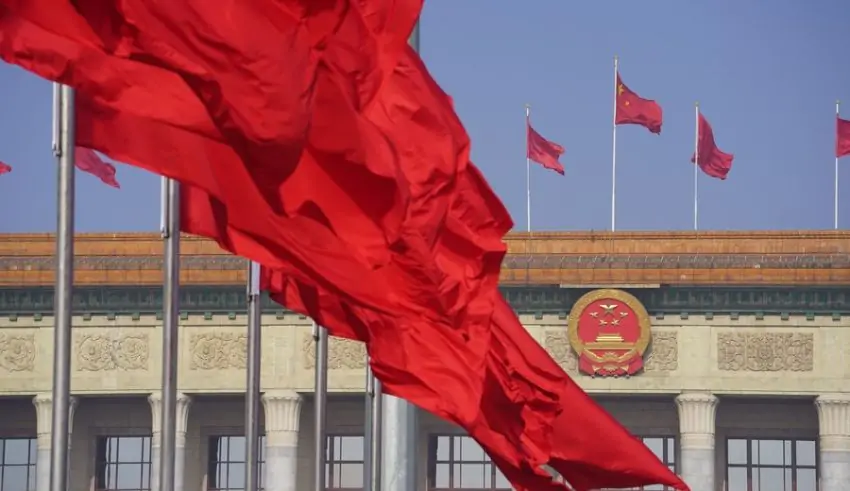

(C) Chinese Embassy
Recent events involving the unapproved flying of a Chinese flag in a Valenzuela City warehouse have generated legal discussions and questioned the implications of such actions under Philippine law.
Chinese flag discovered in Valenzuela City warehouse was removed by Bignay Police Sub-Station 71. Though the warehouse secretary clarified that the flag was just used as a pigeon identifier with no other purpose, its existence has drawn attention because of possible legal ramifications.
The Philippine Flag and Heraldic Code (Republic Act 8491) expressly forbids flying any foreign flag in public, save in certain places such as embassies, diplomatic missions, and offices of international organizations. This statute highlights the need of the national flag as a representation of pride in the country and sovereignty, and it lays forth stringent rules for its usage and display.
The issue is now being looked into by authorities for possible flag and Heraldic Code infraction. Investigating the flag’s display and if it disrespects the Philippine flag are the Valenzuela City Police and other national agencies. This question seeks to find out why the flag was there and whether any laws have been broken.
The event is a timely reminder of the need of honoring national emblems and the surrounding legal limits. To avoid inadvertent infractions and misunderstandings, it emphasizes the need of raising public knowledge and comprehension of the laws controlling such symbols.
The incident has drawn attention to the need of upholding Philippine laws pertaining to national symbols by triggering a legal investigation into the circumstances surrounding the flying of the Chinese flag. It has also increased public awareness of the need of appropriately handling and displaying national symbols to prevent inadvertent breaking of the law.
The delicate character of international relations means that the unapproved flying of a foreign flag could have diplomatic consequences. It emphasizes the need of upholding diplomatic norms and national symbols in order to preserve good ties with other nations.
The occasion underlines the significance of national emblems in claiming sovereignty and identity. Legally mandated as well as a symbol of respect for the nation’s past and culture, flying the Philippine flag is an obligation.
The unapproved Chinese flag flying in Valenzuela City has attracted notice for its diplomatic and legal ramifications. Raising public understanding of the significance of national symbols and making sure Philippine legislation are followed are crucial while investigations are ongoing. This incident emphasizes in a globalized society the need of maintaining national pride and legal standards while honoring national identity and sovereignty.
The UAE launched regional economic deals while building its Asia network. Vietnam signed its second Comprehensive Economic Partnership Agreement in…
This Saturday, Estoril Praia, one of the best football teams in Portugal will wear a notable green and yellow kit…
Hong Kong Post announced it is stopping the mailing of goods to the United States, referring to what they perceive…
Honda to Transfer U.S.-Bound Civic Hybrid Production from Japan to Indiana Honda brings production of its five-door Civic hybrid back…
The Barcelona Open Banc Sabadell presents exciting ATP 500 matches on Wednesday, with important clashes scheduled on different courts. The…
Filipino FIDE Master Christian Gian Karlo Arca who is 16 years old won a major victory by beating German Super…
This website uses cookies.
Read More